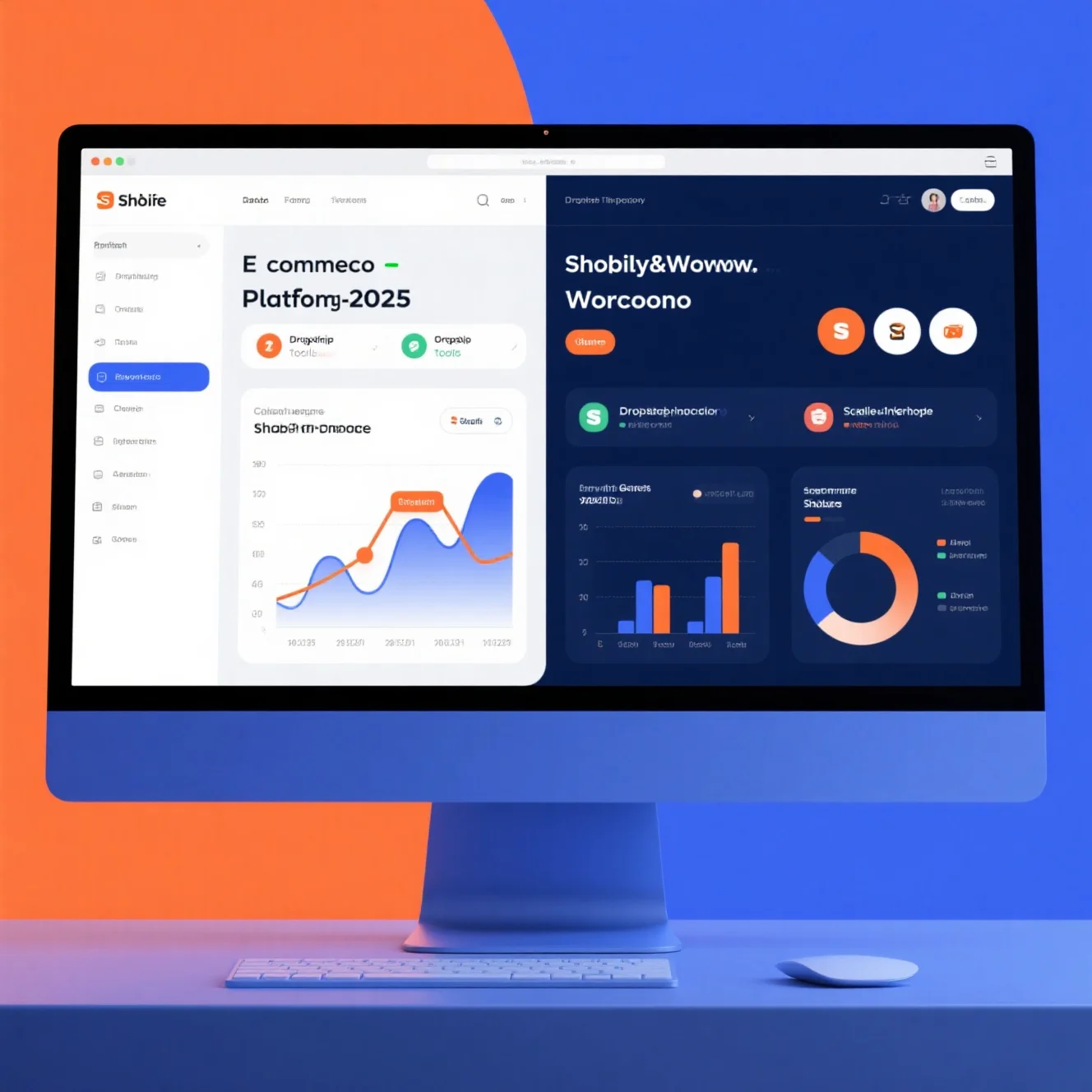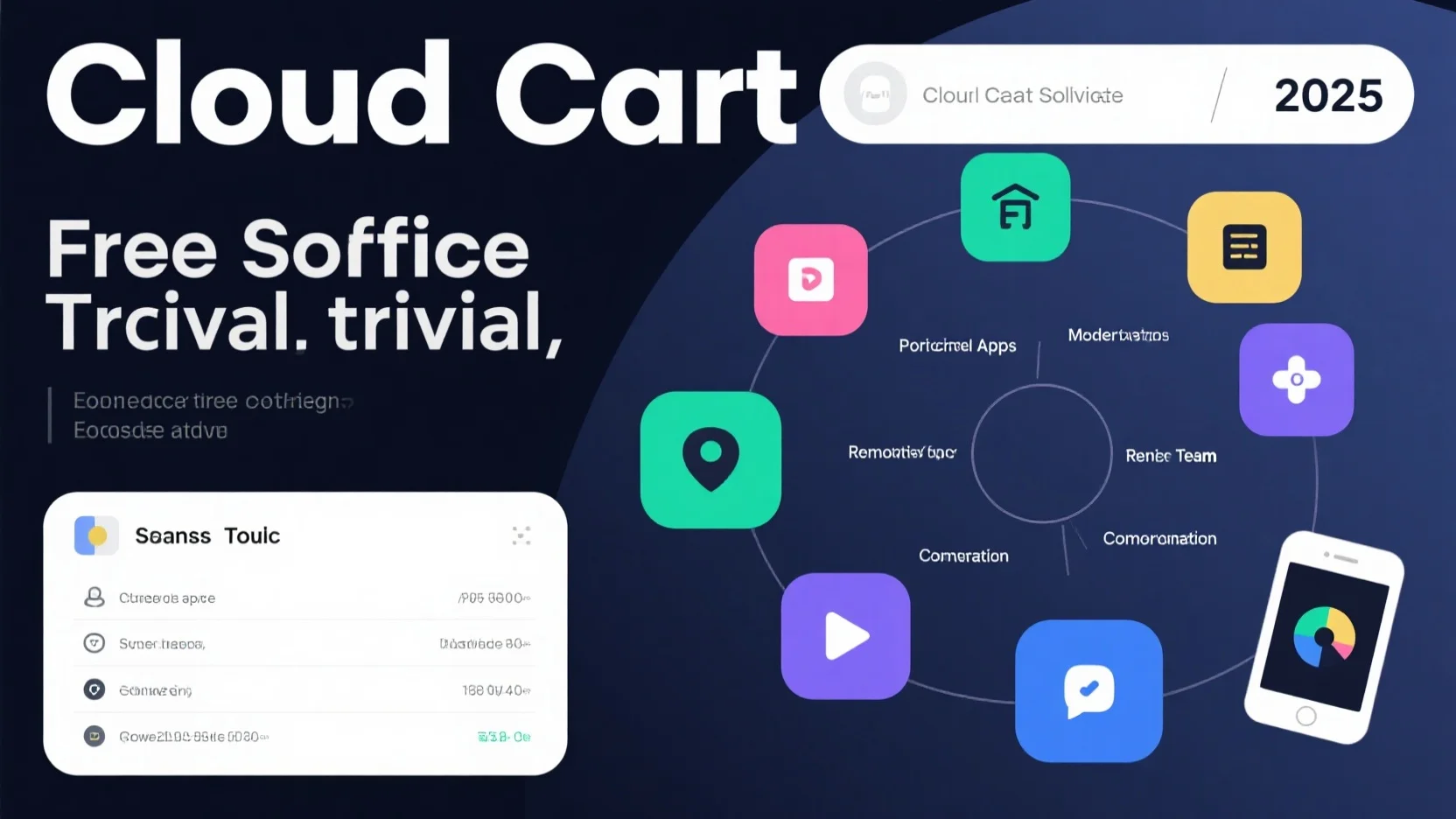Image Source: pexels
Choosing the right e-commerce platform can transform your business. In 2025, global e-commerce sales are expected to hit $7.4 trillion, a 74% increase from 2020. This growth highlights the importance of the Best E-commerce Platforms for Scaling Your Online Store in 2025, which support scalability, efficiency, and profitability. The right choice empowers you to thrive in this booming digital marketplace.
Key Takeaways
- Pick a platform that can grow with your business. This helps your store manage more visitors and products easily.
- Find tools to customize your store to match your brand. Things like mobile-friendly design and SEO tools make your store easier to find and use.
- Check all costs, like monthly fees and transaction charges. A good platform is affordable and has the features you need.
Key Criteria for Selecting the Best E-commerce Platforms
Scalability and Growth Potential
Your e-commerce platform should grow with your business. Scalability ensures that as your traffic and sales increase, your platform can handle the load without compromising performance. Look for platforms that support unlimited product listings, high traffic volumes, and seamless upgrades. A scalable platform allows you to focus on expanding your business without worrying about technical limitations.
Features and Customization
Every business is unique, and your e-commerce platform should reflect that. Customization options let you tailor your store to match your brand identity. Features like responsive design, multiple payment gateways, and SEO tools are essential for success. Platforms offering robust inventory management and AI tools for sales optimization can give you a competitive edge.
Pricing and Value
Understanding the pricing model of a platform is crucial. Some platforms offer value-based pricing, which aligns costs with the features you need. Others may use bundle pricing, providing additional tools at a discounted rate. Always consider the total cost, including subscription fees, transaction charges, and add-ons. A cost-effective platform balances affordability with the features required for growth.

Integrations and Ecosystem
The ability to integrate with third-party tools is a game-changer. Popular integrations include accounting software, CRM systems, and social media platforms. These integrations streamline operations and enhance customer engagement. A strong ecosystem ensures your platform adapts to your evolving business needs.
Ease of Use and Support
A user-friendly interface saves time and reduces frustration. Reliable customer support is equally important, especially when technical issues arise. Look for platforms offering 24/7 support, detailed documentation, and active user communities. These features ensure you can focus on growing your business without unnecessary hurdles.
Best E-commerce Platforms for Scaling Your Online Store in 2025
Image Source: pexels
Shopify Plus
Shopify Plus stands out as one of the Best E-commerce Platforms for Scaling Your Online Store in 2025. It offers unlimited scalability, making it ideal for businesses experiencing rapid growth. You can customize your store’s design to reflect your brand identity while enjoying seamless integration with tools like CRMs and marketing platforms. Advanced reporting and analytics help you make data-driven decisions, while automation capabilities save time by streamlining repetitive tasks. Shopify Plus also supports multi-channel selling, allowing you to expand across platforms like Amazon, eBay, and social media. With 24/7 dedicated support and robust security features, you can focus on growing your business without worrying about technical challenges.
BigCommerce
BigCommerce simplifies scaling by handling hosting, upgrades, and security for you. This SaaS platform ensures your store operates smoothly as you grow. Its powerful APIs allow seamless integration with essential tools, boosting operational efficiency. BigCommerce supports international sales with multi-currency functionality and partnerships with leading payment providers. Multinational retailers like Start-Rite Shoes have chosen BigCommerce for its ability to handle high traffic and complex operations. If you’re looking for a platform that removes technical barriers and supports global expansion, BigCommerce is a strong contender.
WooCommerce
WooCommerce offers unmatched flexibility for scaling your online store. It allows you to respond quickly to growth without storage or service limits. You can list unlimited products and variations, making it perfect for businesses with extensive inventories. WooCommerce’s optimized code ensures your store performs well even during high-demand situations. Additionally, you can choose any hosting provider that fits your needs, giving you full control over your store’s infrastructure. With flat-rate pricing, your costs remain predictable, maximizing profitability as your sales increase.
Adobe Commerce (Magento)
Adobe Commerce caters to large-scale businesses with features designed for growth and innovation. It enhances the shopping experience with secure payment management, headless commerce, and password-free checkout. AI-enabled search results and real-time inventory management personalize the user experience, helping you connect with your customers. Its cloud-native capabilities and ERP system integration ensure your store can scale effortlessly. If you’re aiming for a platform that combines scalability with cutting-edge technology, Adobe Commerce is worth considering.
Wix eCommerce
Wix eCommerce is a user-friendly platform suitable for small to medium-sized businesses. While its scalability may be limited for large stores, it excels in providing an intuitive interface for setting up your online shop. Wix offers visually appealing templates and essential e-commerce functionalities like inventory management and tax calculations. It supports various payment options, including PayPal and Stripe, making transactions seamless for your customers. Built-in analytics help you track your store’s performance, empowering you to make informed decisions.
Squarespace Commerce
Squarespace Commerce is perfect for businesses that prioritize aesthetics and simplicity. Its ease of use allows you to set up your store quickly, even if you lack technical expertise. Integrated e-commerce features like inventory management and tax calculations streamline operations. Squarespace supports multiple payment options and includes built-in analytics to monitor your store’s success. If your brand relies heavily on visual appeal, Squarespace Commerce can help you create a stunning online presence.
Ecwid by Lightspeed
Ecwid by Lightspeed is a versatile platform that integrates seamlessly with existing websites and social media channels. It’s an excellent choice for businesses looking to expand their online presence without building a new store from scratch. Ecwid supports multi-channel selling, allowing you to reach customers on platforms like Facebook, Instagram, and marketplaces. Its mobile-friendly design ensures your store looks great on any device, enhancing the shopping experience for your customers.
Comparison of the Best E-commerce Platforms
Image Source: pexels
Features and Scalability
When choosing a platform, you want one that grows with your business. The best platforms offer essential features like user-friendly interfaces, multiple payment gateways, and mobile responsiveness. They also include advanced tools like AI-driven analytics, inventory management, and SEO capabilities.
Scalability is equally important. Platforms like Shopify Plus excel with their intuitive interface, 24/7 support, and theme customization. They handle increased product listings and website traffic effortlessly. BigCommerce and Adobe Commerce also shine with their integration capabilities and flexibility, making them ideal for businesses aiming for long-term growth.
Tip: Prioritize platforms that combine robust features with the ability to scale seamlessly. This ensures your store can handle future growth without technical hiccups.
Pricing and Affordability
Affordability plays a key role in your decision. While some platforms like WooCommerce offer predictable flat-rate pricing, others like Shopify Plus and BigCommerce use subscription-based models. These often include additional tools and integrations, which can add value.
You should also consider transaction fees and the cost of add-ons. For instance, Wix eCommerce provides an affordable option for small businesses, while Adobe Commerce caters to enterprises with higher budgets. Balancing cost with the features you need ensures you get the best value for your investment.
Ideal Use Cases
Different platforms suit different business needs. Here’s a quick comparison to help you decide:
| E-Commerce Platform | Ideal Use Case Description | Ideal User Base Description |
|---|---|---|
| Squarespace | Best for businesses focusing on aesthetics, such as fashion, photography, and art. | Small to medium-sized businesses prioritizing a strong visual presence, including creative professionals and bloggers. |
| Salesforce Commerce Cloud | Designed for large-scale operations, offering enterprise-level solutions. | Large enterprises that require complex features, though it may be challenging for smaller businesses. |
| PrestaShop | Flexible and scalable for small to medium-sized businesses without high costs. | Small to medium-sized businesses, especially those with less technical expertise looking for ease of use. |
By aligning your business goals with the strengths of each platform, you can make a choice that supports your growth journey.
Choosing the Right Platform for Your Business
Identifying Your Business Needs
Understanding your business needs is the first step in choosing the right e-commerce platform. Every business has unique requirements, and identifying these will help you make an informed decision. Consider factors like scalability, budget constraints, and technical expertise. For example, if you anticipate rapid growth, you’ll need a platform that can handle increased traffic and product listings. If your team lacks technical skills, a user-friendly platform with robust customer support will be essential.
Here’s a quick overview of common business needs to guide your decision:
| Business Need | Description |
|---|---|
| Scalability | The platform should accommodate current needs and future growth. |
| Budget Constraints | Initial and ongoing costs must be evaluated to avoid unexpected expenses. |
| Technical Expertise | The level of technical skills required to manage the platform effectively varies by platform. |
| Customization Needs | Some platforms offer extensive customization, while others have predefined structures. |
| Integration Capabilities | Seamless integration with existing systems is vital for operational efficiency. |
| SEO and Marketing Features | Effective SEO and marketing tools are essential for driving traffic and conversions. |
| Customer Support | Reliable support and an active community can provide valuable resources when issues arise. |
Planning for Long-term Growth
Your e-commerce platform should not only meet your current needs but also align with your long-term goals. Think about where you want your business to be in five years. Does the platform offer scalability to handle future growth? Are its features comprehensive enough to support your evolving operations? Look for platforms with responsive design, SEO-friendliness, and robust security features to ensure your store remains competitive.
Tip: Prioritize platforms that offer customization options and seamless integrations. These features will help you adapt to changing market demands and customer expectations.
Evaluating Costs and ROI
Choosing an e-commerce platform is an investment, so evaluating costs and ROI is crucial. Start by analyzing the total cost of ownership, including subscription fees, transaction charges, and add-ons. Then, assess how the platform can boost your revenue. Metrics like conversion rate, average order value (AOV), and customer lifetime value (CLV) can help you measure ROI. For instance, platforms with built-in SEO tools and marketing features can drive more traffic, leading to higher sales.
Pro Tip: Experiment with A/B testing to optimize your store’s performance. Small changes, like adjusting the color of a “Buy Now” button, can significantly improve conversion rates.
Testing Platforms with Free Trials
Before committing to a platform, take advantage of free trials. These trials allow you to explore the platform’s features and assess its ease of use. Test its customization options, integrations, and overall performance. Pay attention to how well it aligns with your business needs and long-term goals. Use this opportunity to identify potential challenges and ensure the platform meets your expectations.
Remember: A free trial is your chance to experience the platform firsthand. Use it to make a confident, well-informed decision.
Choosing the right e-commerce platform is pivotal for scaling your online store in 2025. The right platform aligns with your business model, supports cloud-based scaling, and enables international growth.
For example, REI achieved a 23% increase in mobile conversions and reduced site management costs by 40% within six months of adopting Salesforce Commerce Cloud.
Leverage free trials to explore functionality and involve your team to ensure the platform meets your needs. E-commerce platforms empower you to gather customer insights, reach global audiences, and operate 24/7, driving growth and profitability. Take action today to secure your business’s future success!
FAQ
What is the most important factor when choosing an e-commerce platform?
Scalability is key. You need a platform that grows with your business, handles increased traffic, and supports advanced features as your store expands.
How can I test if an e-commerce platform is right for my business?
Use free trials. Explore features, test integrations, and evaluate ease of use. Ensure the platform aligns with your business goals and supports your long-term growth strategy.
Are there affordable options for small businesses?
Yes! Platforms like Wix eCommerce and Squarespace Commerce offer budget-friendly plans with essential features. These options are perfect for small businesses starting their online journey.





